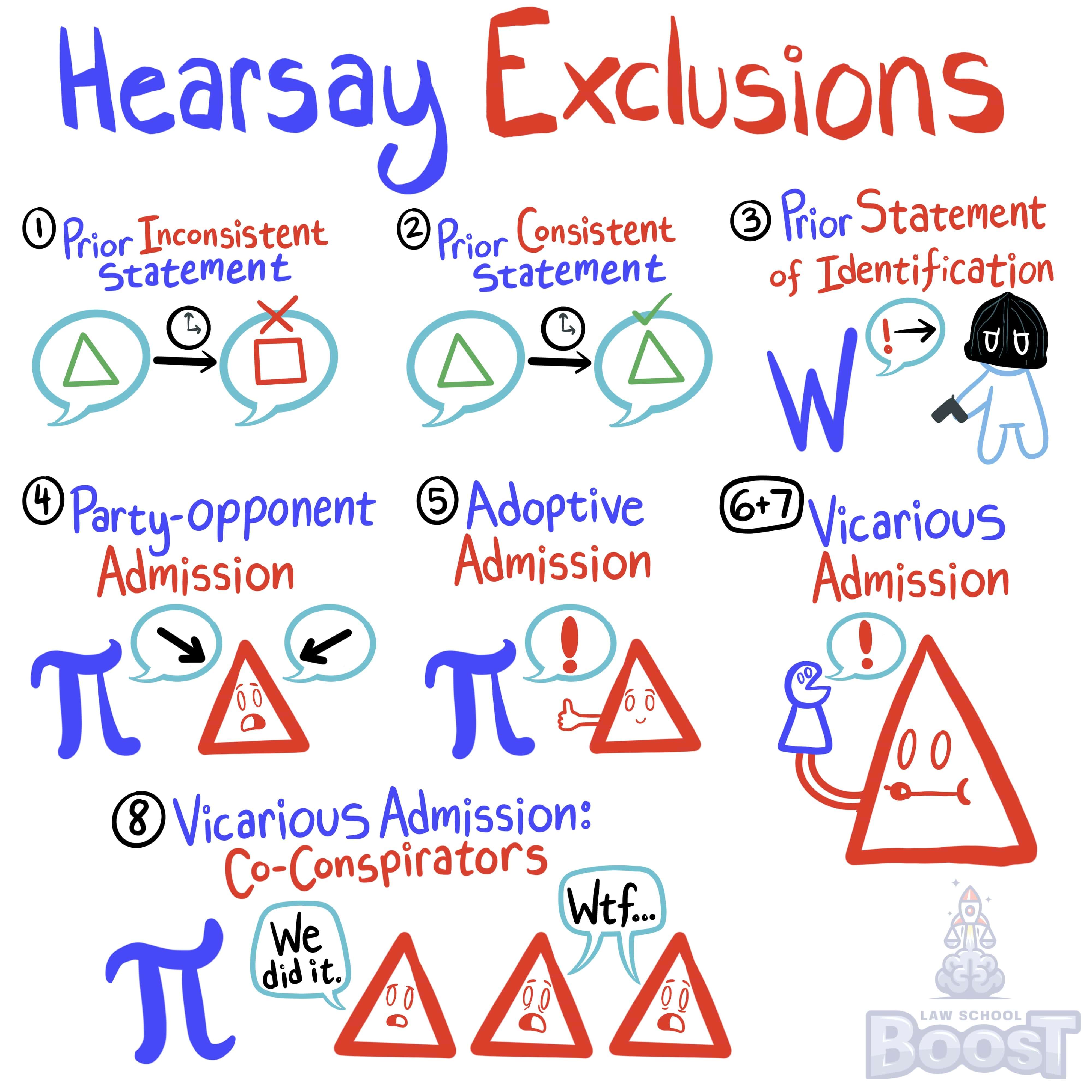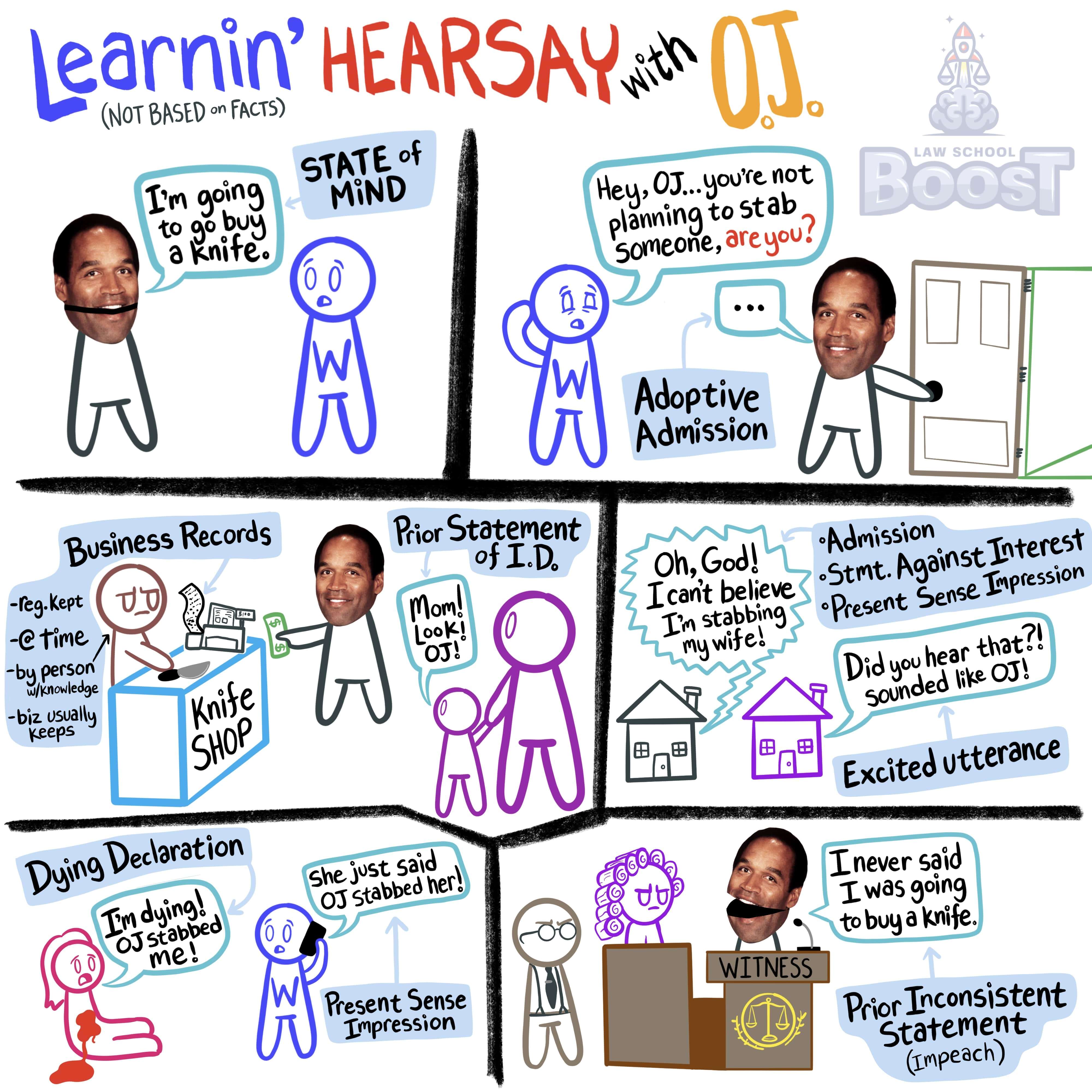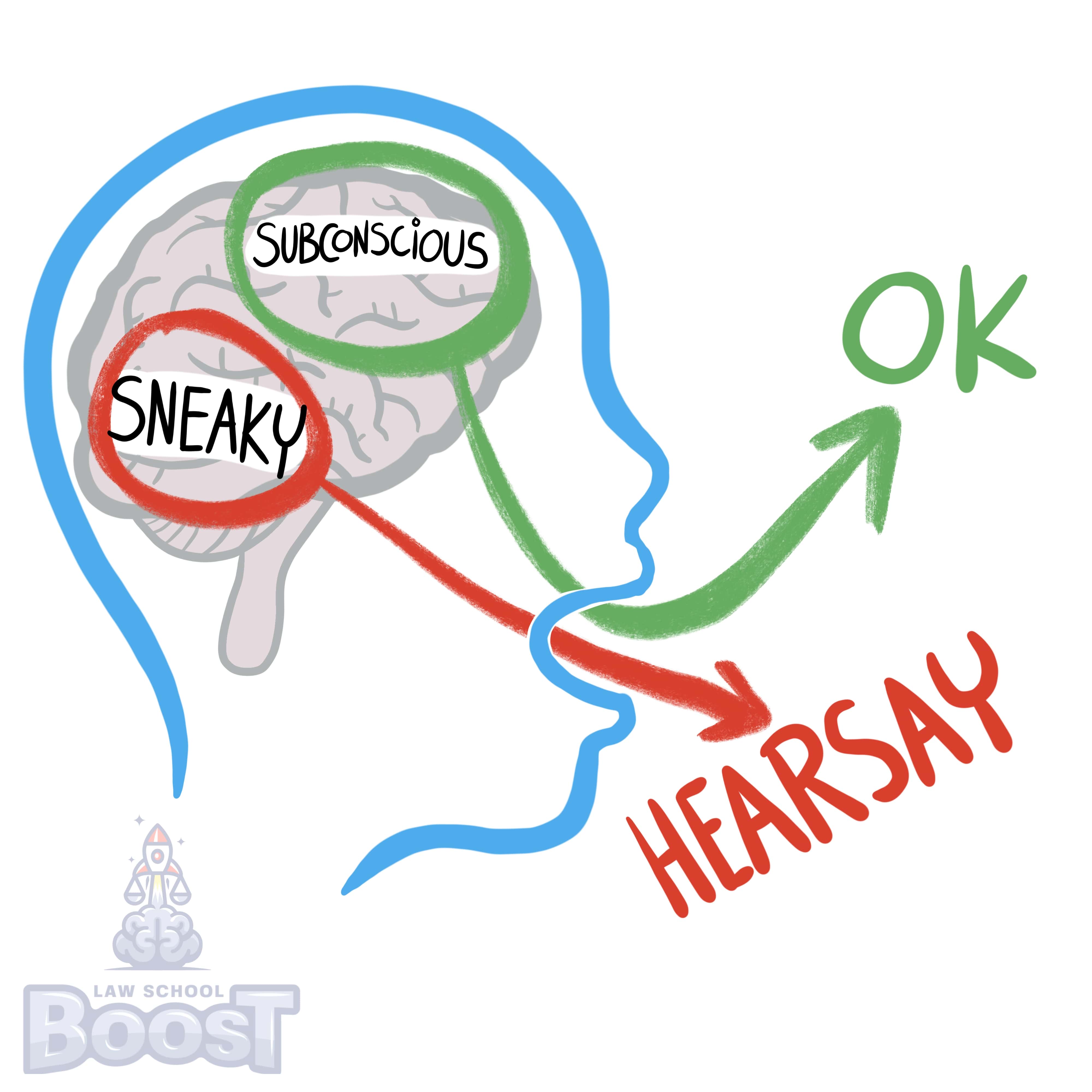🦅
Federal Evidence • Hearsay Exclusions
EVID#028
Legal Definition
An adoptive admission is a hearsay exclusion. It is a statement where a party expressly or impliedly adopts or acquiesces to the statement of another.
Plain English Explanation
An adoptive admission is when a person does not directly say something themselves, but they agree or accept what someone else has said as true. This can happen either by saying it outright or by not denying it when they had a chance to.
Imagine you're accused of eating the last cookie, and your friend says, "You always eat all the cookies!" Instead of denying it, you just shrug and smile. This might make others think that you're admitting it's true, even if you didn't say it yourself. In law, this is called an adoptive admission. It's like silently nodding your head to what someone else is saying about you. Lawyers use this rule in court because sometimes what you don't say can be just as important as what you do say. It helps figure out the truth when people don't directly say something but seem to agree with what others are saying about them.
Imagine you're accused of eating the last cookie, and your friend says, "You always eat all the cookies!" Instead of denying it, you just shrug and smile. This might make others think that you're admitting it's true, even if you didn't say it yourself. In law, this is called an adoptive admission. It's like silently nodding your head to what someone else is saying about you. Lawyers use this rule in court because sometimes what you don't say can be just as important as what you do say. It helps figure out the truth when people don't directly say something but seem to agree with what others are saying about them.
Hypothetical
Hypo 1: Bob and Sam are at a party. Someone accuses Bob of breaking a window. Sam, who was with Bob at the time, says, "Bob was really angry and threw a rock at the window." Bob hears this and just smirks, not denying it. Result: Bob's smirk and silence, in response to Sam's accusation, can be considered an adoptive admission. He implicitly agrees with Sam's statement by not denying it.
Hypo 2: During a business meeting, Amy accuses Bob of leaking confidential information. Sam, who is Bob's business partner, adds, "Yes, Bob was the only one who had access to those files." Bob stays silent and doesn't respond. Result: Bob's silence in this situation can be interpreted as an adoptive admission, suggesting that he accepts Sam's statement as true.
Hypo 3: During a company audit, Sam, the CFO, presents a financial report in a meeting with the board of directors, including Bob, the CEO. In the report, Sam explicitly states that certain questionable transactions were approved by him as part of a strategic move to save costs. Bob, while reviewing the report in the meeting, states clearly, "Yes, I agree with this report, and I support the decisions made here." Later, when regulatory issues arise concerning these transactions, Bob's statement in the board meeting is brought up in court as evidence. Result: Bob's explicit agreement with the financial report and its contents serves as an express adoptive admission. His clear affirmation in the meeting is used against him to show his approval and knowledge of the questionable transactions, significantly impacting the legal proceedings against the company.
Hypo 2: During a business meeting, Amy accuses Bob of leaking confidential information. Sam, who is Bob's business partner, adds, "Yes, Bob was the only one who had access to those files." Bob stays silent and doesn't respond. Result: Bob's silence in this situation can be interpreted as an adoptive admission, suggesting that he accepts Sam's statement as true.
Hypo 3: During a company audit, Sam, the CFO, presents a financial report in a meeting with the board of directors, including Bob, the CEO. In the report, Sam explicitly states that certain questionable transactions were approved by him as part of a strategic move to save costs. Bob, while reviewing the report in the meeting, states clearly, "Yes, I agree with this report, and I support the decisions made here." Later, when regulatory issues arise concerning these transactions, Bob's statement in the board meeting is brought up in court as evidence. Result: Bob's explicit agreement with the financial report and its contents serves as an express adoptive admission. His clear affirmation in the meeting is used against him to show his approval and knowledge of the questionable transactions, significantly impacting the legal proceedings against the company.
Visual Aids



Related Concepts
Does California recognize the hearsay exclusion of a vicarious admission from a principal-agent?
How does the prior inconsistent statement hearsay exclusion differ in California?
How does the prior statement of identification hearsay exclusion differ in California?
What is an admission by a party-opponent?
What is a prior consistent statement?
What is a prior inconsistent statement?
What is a prior statement of identification?
What is a vicarious admission from a co-conspirator?
What is a vicarious admission from an authorized spokesperson?
What is a vicarious admission from a principal-agent?


